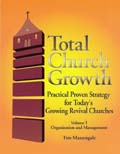
By Tim Massengale
Pastor Mark North nibbled on the end of his pen and stared at the computer projector sitting on the desk in front of him. It was broken – the lens was shattered – and he needed it for his monthly council meeting that night with his department heads.
With a sigh, he picked up the phone to call his good friend and neighboring pastor, Brother Vernon Baker.
Thirty minutes later he paused at the entrance to Elder Baker’s office. The elderly pastor looked up and smiled. “Come in! I got that projector you need right here,” he motioned to a zippered case sitting on the edge of his desk. “Glad we can help. This is an extra one we don’t often use, so you are free to keep it until you get yours fixed.”
“Thanks so much, Elder. You don’t know how much I appreciate this. I feel bad, though. It seems I’m constantly borrowing from you.”
“And I from you! What are friends for? Remember that chain saw you loaned me? Works great! When do you need it back?”
Mark grinned. “No rush – just whenever you’re through. But this projector saves my bacon. I want to show a leadership training DVD tonight at my monthly planning session.”
Why Plan Monthly?
Elder Baker nodded. “So how are the monthly planning sessions going? Are they working out for you?”
“Absolutely! We have been doing them for over a year now. I meet with all my ministry leaders the first Tuesday evening of each month. You know, I don’t know how I managed without them. I can honestly say they have been the key to the success of our church growth plan.”
The older pastor nodded in agreement. “Remember I told you that if you ever stopped meeting with your ministry leaders each month that your growth plan would collapse. Setting growth goals and launching evangelism programs are good – but success lies in motivating and managing that growth plan for the long term. Your monthly planning council does that, plus it gives you the means to implement your plans from your planning retreat, lets you evaluate the progress and success of each ministry, and provides much needed accountability for your volunteer team. Of the four key parts of the church management plan I showed you – the annual planning retreat, the departmental one-year plans, the monthly planning council, and the weekly tag-in – the most critical is your monthly planning. This is what keeps your growth plan on track.”
Encouraging Faithfulness
Mark settled into one of the leather chairs in front of Brother Baker’s desk. “I agree. But I am having a little trouble with my leaders being faithful to attend. Any suggestions?”
“Perhaps. Did you set all your monthly meeting dates at your annual planning retreat?”
“Yes. We went through the calendar month by month and I made sure they all marked the dates.”
“Good. Do you send them an email a week before the meeting reminding them of the meeting and attaching a copy of the tentative agenda to show what will be discussed?”
“I do send them the email reminder, but how can I send the agenda? I usually wait until I hear back from them before I make that up.”
“You should be able to list most of the discussion topics in advance. They come from the departmental one-year plans that they handed in after your planning retreat. Whatever the department has planned for the next three months should be on the agenda.”
“I see. So by listing it as a discussion topic it should encourage their attendance?”
“Hopefully. If the activity or goal is important to them they will want to get approval for their plans. In the email I also ask if they have anything they want to add to the agenda. Most will have an extra question or problem they want to discuss. I then have my secretary contact them by phone the day before the meeting to finalize the agenda. By doing this we almost always have 100% participation. If a leader is unable to attend for some reason, I always ask them to have someone else – usually their spouse or assistant – attend in their place.”
Mark nodded. “I’ll give that a try. I guess I also need to teach more on the importance of faithfulness. My leaders are still a work in development. I know it takes time to develop quality leadership.”
“True. It took Jesus three and a half years to get the Apostles where they needed to be to lead the church. You are wise, Mark, to understand that training and developing leaders takes time, but nevertheless it is an essential element of church growth.”
Mark chuckled. “You forgot me. It took me six months just to learn how to hold effective planning sessions. But I have learned a few things that seem to really help.”
Monthly Planning Success
The older pastor sat back and cocked an eyebrow. “Like what? Share with me.”
“Well, first is where we meet. I started out in the young marrieds’ Sunday school classroom. It was set up lecture style with chairs facing a small podium. I quickly learned that we were there for group discussion and that lecture format didn’t work. We now always meet sitting around a table so everyone has good eye contact.
“I also try to occasionally vary our location. Twice I have had it at my house and we grilled hamburgers and held the meeting as we ate. I also have used a local restaurant that has a good meeting room. They always enjoy that.
“Probably the most important thing I’ve learned is to be conscientious of their time. Most have to go to work the next morning, so I can’t let the meeting last too long. We start at 7:00 with group prayer for about fifteen minutes. I then do leadership training – that takes about twenty minutes. Then we work through our agenda. That takes at least an hour or so. I try to always finish before 9:00 p.m.”
The old pastor grinned. “Aha! So you have learned the old adage, ‘the mind can only absorb what the seat can endure.’”
Mark laughed. “Precisely. I also keep the atmosphere informal. We laugh a lot. We have drinks and snacks. Someone always brings cookies or cupcakes. It’s as much a time of fellowship as it is planning. We talk about some pretty serious stuff, but I want them to look forward to and enjoy the meeting.”
Monthly Departmental Reports
“And departmental reports? When do you collect these?”
“I was going to ask you about that. I took the sample reports you gave me and customized them to fit my church. But I have been having trouble getting my leaders to be faithful to handing them in. Any suggestions?”
“I had that problem too. What helps me has been three things: First, when my secretary calls them the night before the meeting, she stresses that it is important for them to have their report ready. That seems to help. Second, I always collect reports the very first thing – even before we start praying.”
“Really!” Mark said with surprise. “Why is that?”
“If you don’t collect them first, some will spend the first half of the meeting filling out their report. I don’t want them distracted. I need them involved in the group discussion. So anyone that does not have their report ready first thing, I ask them to wait and hand it in at the next church service or weekly tag-in.
“Finally, several times a year I stress why these written reports are so important. I have a handout that lists points like – keeps the pastor informed without in-depth quizzing, keeps us result oriented, focused on priorities, and accountable to our duties. It also is a great analysis tool and helps identify weak areas needing attention. It improves communication and forces the leader to stay on top of their department, builds excitement as we see the successes and results of our labors – that kind of thing. I have found that if my leaders know why the report is important, they are more committed to doing it.”
Mark nodded. “Makes sense. I’ll give these suggestions a try.”
“Oh, one more thing,” Brother Baker said, leaning forward. “As you come to each department listed on your agenda, always have the leader read the highlights and totals from their report. You should look for things upon which to make a favorable comment. If you just glance at the report and take it lightly, you are telling that director that their department and responsibilities are not important. Always remember, Mark, that one of the greatest of motivators is feedback on results. Complement them on what went well. Ask questions. Show sincere interest. Nothing will encourage your leaders more than being complimented in front of their peers. Everyone appreciates being appreciated.”
The Weekly Tag-In
Mark had his notepad out and was writing. After a moment he paused and looked up, chewing lightly on the pen’s tip. “You mentioned the Weekly Tag-In. I know you suggest this as part of the church management program. I have done it occasionally in the past, but not on a regular basis. Is it really necessary?”
The elderly pastor relaxed back in his desk chair. “The weekly tag-in, Mark, is optional – but most pastors find it necessary. I have used this management process for over twenty years and I have found it to be a critical component to its success. The tag-in, as you remember, is done before or after a regular service time. Some meet with their leaders early on Sunday morning for bagels and coffee. Others like to meet briefly in the pastor’s office for prayer before Sunday evening service. I have always done mine immediately after my dismissal prayer on Bible study night. When you do it is not important. What is important is to have a brief time like this to encourage faithfulness and help them solve problems. The primary benefit is that it helps stop procrastination and improves communication.
“The tag-in must be very brief. It takes me about five minutes total – that’s about thirty seconds per leader. At my monthly planning meeting I often give my leaders assignments – things like, ‘order this literature, make this reservation, talk to this person.’ In the business world they call these directives – asking someone to get something done by a certain date. Well, you must remember you are working with volunteers. Motivation does not come by paycheck. Volunteers tend to procrastinate easily so you must utilize some creative motivational techniques. The weekly tag-in does this quite well. My secretary brings my directives list to the weekly tag-in. I then ask them if they have completed their assignment. They can answer only one of three ways: ‘yes,’ ‘no,’ and ‘I need to see you about that.’ Those that are having problems – and therefore need to discuss it with me – I work those out after I have completed the tag-in with the others. Not everyone has an assignment. So I just ask, ‘anything I can help you with?’ Most just say ‘all’s good.’ I always end the tag-in with a few words of encouragement and appreciation. Often I’ll pray over them. But this keeps me accessible. It also lets them know how important they are to our success. It’s quick, brief, but sends a very powerful message and solves a multitude of problems. These are my leaders, Mark. Without them my church will not grow. They deserve a few minutes of my time each week. They are not being paid. In truth, their only payment in this life is the support and encouragement I give them. I owe them that.”
Mark had been writing, but now he sat back, a thoughtful look on his face. “You know, Elder, I think that’s been my problem. I have been doing all taking from my leaders with very little giving. I’m asking a lot of them. Their job descriptions are three to four pages long. They work hard. I think I need to support and encourage them more. So the monthly planning council and weekly tag-in is exactly what we both need.”
Brother Baker nodded and stood up. “Good! So you have your projector and I’ve solved your latest leadership problem – now you can do something for me…”
“Sure! Anything. How can I help?”
From behind his desk Elder Baker picked up a basket of clothes. “My laundry.”
“Your laundry? You want me to do your laundry?”
“No, silly. I want you to drop this load of white shirts by the cleaners. My car’s in the shop and I won’t have time before they close.”
“Sure! Glad to! For a minute there I thought you wanted me to …”
The older pastor started laughing and, with his face turning red, Mark joined in.
If you would like to have a more in-depth description of a monthly planning council and weekly tag-in, plus sample monthly departmental reports and tag-in sheets, call 1-800-800-0247 or email ais@apostolic.edu. Cost is $5.00 plus postage.




1 thought on “Monthly Power Planning (Entire Article)”
Comments are closed.